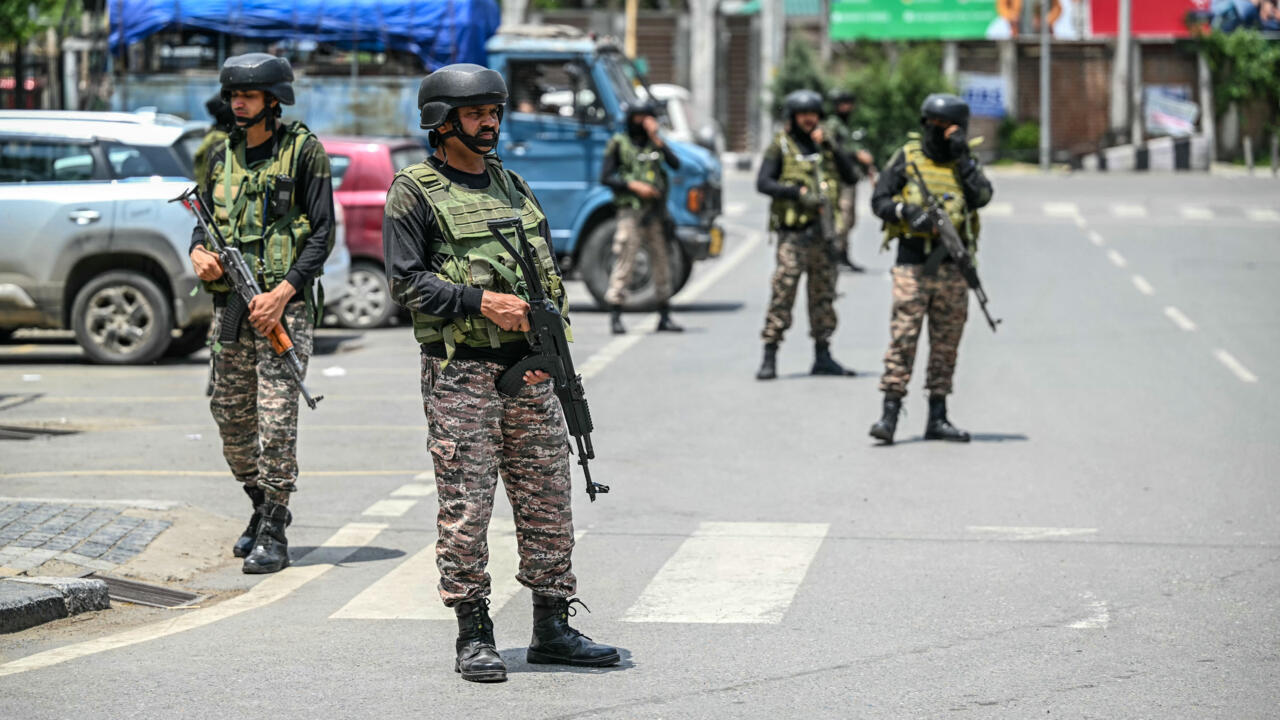The recent conviction of three prominent Kashmiri women leaders—Asiya Andrabi, Fahmeeda Sofi, and Nahida Nasreen—by a National Investig
Fiscal Deficit and Budget 2009-10. By Mohammed Akmal Pasha

The budget 2009-10 is dogging after the poor, and certainly many of its pages would be dog-eared. Curbing inflation must be at the anvil and ironically speaking the anvil may be the worthy plight of the poorest!
According to the first quarterly of SBP, the July-Sep 2009 revenue stands at Rs 385 billion, the expenditures at Rs. 524 billion meaning a budget deficit of Rs. 139 billion. A revised target of tax to the tune of Rs 1.879 trillion is already set for the next financial year. Other targets remain to be as expenditure of Rs 3.064 trillion, debt servicing Rs 751 billion, defence expenditures Rs 380 billion and development expenditures at Rs. 616 billion [the difference in numbers is due to differing time slots]. If properly administered, potentially Pakistan can generate Rs 300 to Rs 400 billion. Further, it can generate revenues of over Rs100 -150 billion if only tax exemption is revisited. In the wake of chronic fiscal deficit, it is estimated that Pakistan would need $12 billion constantly for next few years to meet its recurring revenue gap. Specifically, enhancing tax revenue is the favorite recipe of the IMF.
Fathoming the implementations and implications of IMF conditionalities has never been straightforward. The reason for that is that their stratagems fructify in years and show their true and sometimes gruesome impact after decades. The developing countries (DCs) and especially less developed countries (LDCs) have had this experience since the advent of aid-syndrome after the Second World War. The same IMF has prescribed as before to broaden tax base and raise the tax to GDP ratio. These two variables seemingly have zero correlation yet a good measure. The tax to GDP ratio currently has declined to 9.5 per cent, which during 1980s and 1990s remained at 12 and 13 per cent respectively. Still it is lower in the region where the average is about 15 per cent. At the higher front of advanced countries like EU it is ranging between 24 to 44 per cent. However, now Pakistan has targeted it to be between 15-18 per cent to be ascertained through tax reforms in next 5 years. The approval of IMF’s second tranche of $800 million out of $7.6 billion is subject to meeting Pakistan’s fiscal deficit otherwise it may be delayed. Previously, IMF’s tilt was toward monetary measures to meet macroeconomic imbalances of the country. It has recently started taking the fiscal rout. Presently, the government’s central challenge is to put downwards pressure on inflation, reducing fiscal deficit and increase tax to GDP ratio.
IMF has further implied that agriculture should be declared as industry and should be brought within the tax bracket accordingly. However, this has its own pros and cons. Simply put, increased tax on agricultural produce will boost their prices on one hand and would discourage agriculturists on the other. If coupled with subsidy may end up as zero sum. Nevertheless, a sector contributing 22 per cent to GDP and providing 60 % employment contributes to tax revenue only by 1 per cent. But Pakistan cannot help except taking adequate measures where agriculture is taxed appropriately.
The new VAT [value added tax] system is supposed to replace the existing GST. It is said to be regressive and burdening the poorer. Through this ghost traders will comfortably evade VAT, whereas the unregistered groups will be beneficiaries. This method will increase administrative cost with respect to tax collection as well.
To conclude, mammoth debt servicing (or debtor servicing) and huge defence expenditure converge to same parties. This is so since we borrow to build our defense because we have been pushed to wall of war against terrorism to which our neighbor is accomplice. The foolhardy pusher is the lender also ultimately scaring us that our nukes are unsafe. If so how impotent and oblivious we are while building our capacity of deterrence? Looks that lenders are making illogical assertions or they are impractical! If not so, the lenders are at least potentially self-destructive and will ultimately wipe out everything including themselves.
There was a door, to which I found no key,
There was the veil through which I might not see,
Some little talk awhile of me and thee,
There was------ and then no more of thee and me.
(Omar Khayyam)
According to the first quarterly of SBP, the July-Sep 2009 revenue stands at Rs 385 billion, the expenditures at Rs. 524 billion meaning a budget deficit of Rs. 139 billion. A revised target of tax to the tune of Rs 1.879 trillion is already set for the next financial year. Other targets remain to be as expenditure of Rs 3.064 trillion, debt servicing Rs 751 billion, defence expenditures Rs 380 billion and development expenditures at Rs. 616 billion [the difference in numbers is due to differing time slots]. If properly administered, potentially Pakistan can generate Rs 300 to Rs 400 billion. Further, it can generate revenues of over Rs100 -150 billion if only tax exemption is revisited. In the wake of chronic fiscal deficit, it is estimated that Pakistan would need $12 billion constantly for next few years to meet its recurring revenue gap. Specifically, enhancing tax revenue is the favorite recipe of the IMF.
Fathoming the implementations and implications of IMF conditionalities has never been straightforward. The reason for that is that their stratagems fructify in years and show their true and sometimes gruesome impact after decades. The developing countries (DCs) and especially less developed countries (LDCs) have had this experience since the advent of aid-syndrome after the Second World War. The same IMF has prescribed as before to broaden tax base and raise the tax to GDP ratio. These two variables seemingly have zero correlation yet a good measure. The tax to GDP ratio currently has declined to 9.5 per cent, which during 1980s and 1990s remained at 12 and 13 per cent respectively. Still it is lower in the region where the average is about 15 per cent. At the higher front of advanced countries like EU it is ranging between 24 to 44 per cent. However, now Pakistan has targeted it to be between 15-18 per cent to be ascertained through tax reforms in next 5 years. The approval of IMF’s second tranche of $800 million out of $7.6 billion is subject to meeting Pakistan’s fiscal deficit otherwise it may be delayed. Previously, IMF’s tilt was toward monetary measures to meet macroeconomic imbalances of the country. It has recently started taking the fiscal rout. Presently, the government’s central challenge is to put downwards pressure on inflation, reducing fiscal deficit and increase tax to GDP ratio.
IMF has further implied that agriculture should be declared as industry and should be brought within the tax bracket accordingly. However, this has its own pros and cons. Simply put, increased tax on agricultural produce will boost their prices on one hand and would discourage agriculturists on the other. If coupled with subsidy may end up as zero sum. Nevertheless, a sector contributing 22 per cent to GDP and providing 60 % employment contributes to tax revenue only by 1 per cent. But Pakistan cannot help except taking adequate measures where agriculture is taxed appropriately.
The new VAT [value added tax] system is supposed to replace the existing GST. It is said to be regressive and burdening the poorer. Through this ghost traders will comfortably evade VAT, whereas the unregistered groups will be beneficiaries. This method will increase administrative cost with respect to tax collection as well.
To conclude, mammoth debt servicing (or debtor servicing) and huge defence expenditure converge to same parties. This is so since we borrow to build our defense because we have been pushed to wall of war against terrorism to which our neighbor is accomplice. The foolhardy pusher is the lender also ultimately scaring us that our nukes are unsafe. If so how impotent and oblivious we are while building our capacity of deterrence? Looks that lenders are making illogical assertions or they are impractical! If not so, the lenders are at least potentially self-destructive and will ultimately wipe out everything including themselves.
There was a door, to which I found no key,
There was the veil through which I might not see,
Some little talk awhile of me and thee,
There was------ and then no more of thee and me.
(Omar Khayyam)
You May Also Like
Open Doors, an international organization that provides protection to vulnerable Christians around the world, released a World Watch List in 2025,
Accepting the Lord Jesus Christ and following His commandments is a difficult and arduous path. Every step of the way is fraught with suffering, pe

"Trial of Pakistani Christian Nation" By Nazir S Bhatti
On demand of our readers, I have decided to release E-Book version of "Trial of Pakistani Christian Nation" on website of PCP which can also be viewed on website of Pakistan Christian Congress www.pakistanchristiancongress.org . You can read chapter wise by clicking tab on left handside of PDF format of E-Book.








